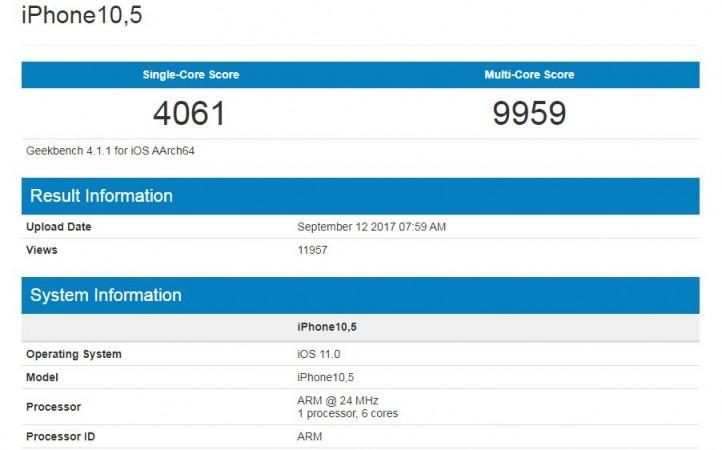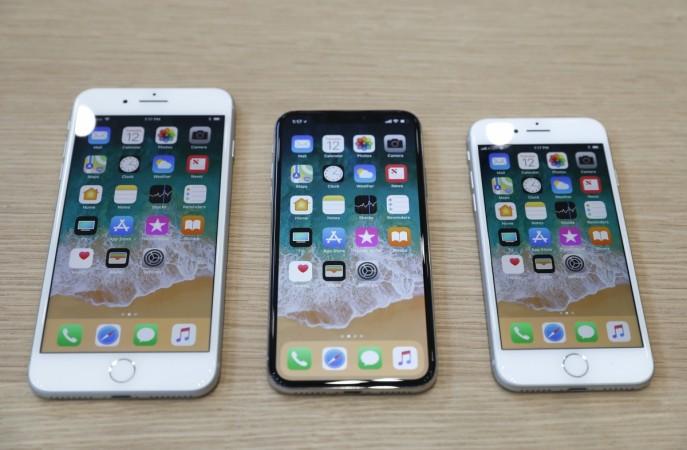Just a few hours before Apple unveiled its new iPhone X and iPhone 8 models on Tuesday, the company's 10th anniversary smartphone model apparently hit the popular benchmarking site Geekbench, suggesting that the new Apple phone can easily outperform many premium Android handsets, including the Samsung Galaxy S8.
The iPhone X, which showed up on Geekbench's directory as "iPhone 10,5," posted scores that are way higher than many new Android smartphones currently available in the market.
For the latest Apple phone, the benchmark listing showed a single-core score of 4,061 and a multi-core score of 9,959.

A quick search of some powerful Android devices showed they could achieve only about half of the iPhone X's numbers. For example:
Samsung Galaxy S8: 1,965 (single-core score); 6,493 (multi-core score)
OnePlus 5: 1,687 (single-core score); 3,649 (multi-core score)
Huawei P10 Plus: 1,886 (single-core score); 5,763 (multi-core score)
The iPhone X benchmarks also surpassed those of last year's iPhone 7, which had scored 3,327 on a single-core test and 5,542 on a multi-core test.
It's not just smartphones: The iPhone X matched and even surpassed benchmark scores of some of the company's tablets and laptops. For example:
iPad Pro (10.5-inch): 3,887 (single-core score); 9,210 (multi-core score)
MacBook Pro (13-inch): 4,227 (single-core score); 8,955 (multi-core score)
The leaked iPhone X benchmark results apparently confirm earlier reports that the device's new A11 chip will give rival phones a run for their money. The new chipset is said to have six independently addressable CPU cores that can run simultaneously.

By comparison, the A10 Fusion processor found inside the iPhone 7 and iPhone 7 Plus has two low-performance cores and two-high performance cores, with only one type of core active at a time.
Considering that the previous-generation A10 Fusion was a tough competitor to beat for the Qualcomm Snapdragon 835 and Samsung's own 10nm Exynos chipset, it's quite safe to assume that the iPhone X's A11 will give Qualcomm and all Android smartphone makers some extremely tough time in the days to come.
Meanwhile, watch Apple's first ad for the iPhone X here. It's an approximately 70-second video, which actually trivialises the home button.















